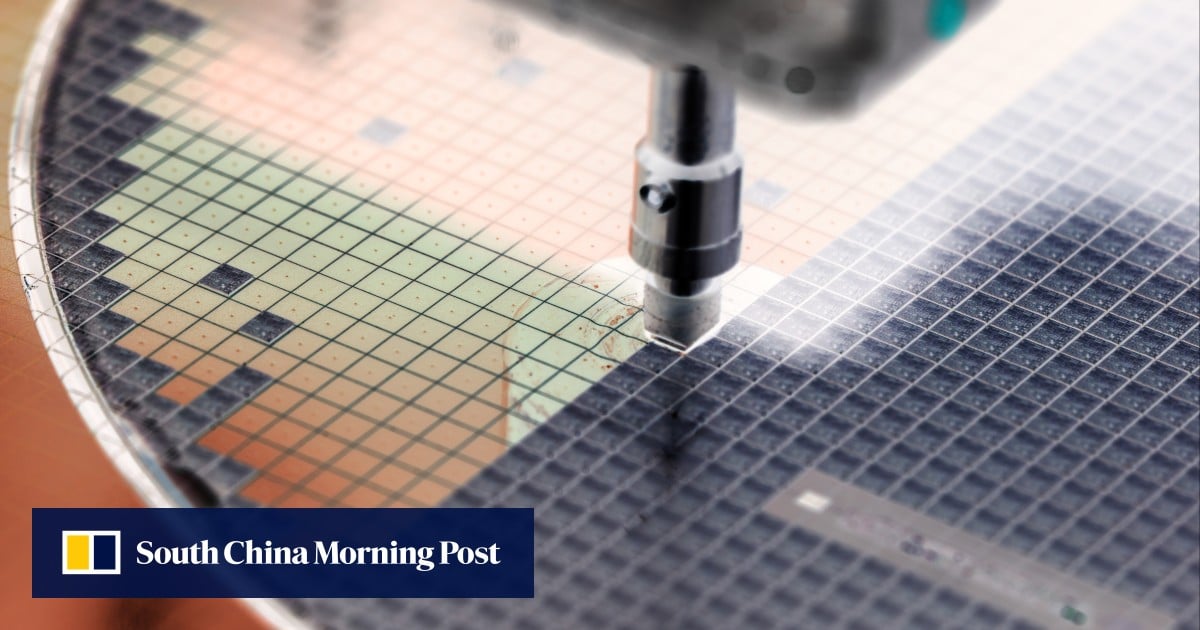China asks Netherlands, with world-leading chipmaking equipment, to not decouple

- by maurya18@gmail.com
- March 28, 2024

China’s commerce minister spoke with his Dutch counterpart this week in a bid to dissuade the European country – exporter of the world’s top chipmaking equipment – from hi-tech decoupling, which would hurt Chinese efforts to develop their own advanced semiconductors.
Wang Wentao and Geoffrey van Leeuwen, the Netherlands’ acting foreign trade minister, met in Beijing on Wednesday for “in-depth exchanges of views on issues such as exporting lithography machines to China and strengthening cooperation in the semiconductor industry”, Wang’s ministry said in a statement. Lithography is a chipmaking process.
Dutch lithography equipment maker ASML has been restricted from selling its most advanced line of extreme ultraviolet (EUV) tools in China for the past five years but has insisted that the chip-export policy is not the result of pressure from the US.
Chinese leader warns Dutch not to put up barriers in wake of tech export ban
Chinese leader warns Dutch not to put up barriers in wake of tech export ban
Tightened export controls on advanced chipmaking systems reduced ASML’s sales to China last year by 15 per cent.
But ASML, which holds a monopoly in the world’s most advanced chipmaking equipment, still has 13 offices in China. Chips run critically important modern devices such as smartphones, computers and vehicles.
The Dutch company continues to ship China equipment that spins out less-advanced chips. China-based customers made up 29 per cent of the firm’s total system sales last year, more than in 2022.
China is “basically saying, ‘Don’t follow the US, and we can be a valuable trade partner’,” said James Chin, a professor of Asian studies at the University of Tasmania. “In terms of chips, China is very worried. That’s why China tries so hard to develop its own.”
Wang called the Netherlands a “trustworthy economic and trade partner” and said China hopes the European country will support companies in fulfilling contractual obligations and “ensure the normal conduct of lithography machine trade”, according to the ministry statement.
These steps, Wang added, are “necessary to … jointly maintain the stability of the global semiconductor industry chain and supply chain and promote the sustained and healthy development of bilateral economic and trade relations”.
Alberto Vettoretti, a managing partner at business consultancy Dezan Shira & Associates, said that China was “actively developing” its own lithography machines, with “substantial” funding support and preferential policies.
ASML has a long lead over its competitors because of an early start in the field, and China lacks any apparent rival, said Ben Yeh, an analyst with market research firm Canalys. ASML got its start in 1984.
China’s investment in Mexico is up – but is dodging US tariffs the whole story?
China’s investment in Mexico is up – but is dodging US tariffs the whole story?
Fostering a domestic rival that can make tools for producing advanced chips would be no easy feat for China, nor cheap, requiring it to develop underlying technology and to build factories, Yeh said, adding: “It will take them a while to do it.”
The Chinese ministry said van Leeuwen called China “one of the Netherlands’ most important economic and trade partners” with no change in sight. He was also quoted as saying that Dutch export controls do not target any specific country.
Van Leeuwen said via LinkedIn that Dutch companies still had “many opportunities” in China, including in the hi-tech sector, and added that he had “discussed sensitive technology” with Wang.
During a separate event on Wednesday, China and the Netherlands expressed a “shared commitment” to oppose the severing of supply chains, state-run news outlet China Daily reported. The topic came up when President Xi Jinping met Dutch Prime Minister Mark Rutte in Beijing.
The Latest News
-
November 22, 2024Nederland voor het eerst in historie in Davis Cup-finale na zege op Duitsland
-
November 22, 2024BAM Infra en Rijkswaterstaat ronden onderhoud A10 Noord en Zeeburgerbrug af Duurzame koploper in wegverharding – Kijk op Noord-Holland
-
November 21, 2024ADIDAS OPENT VANDAAG NIEUWE WINKEL IN DE WESTFIELD MALL OF THE NETHERLANDS – vastgoednieuws.nl
-
November 21, 2024Aanvoerder Koen Bloemen van het Nederlands rugbyteam verzorgt training voor CSE-rugbytalenten
-
November 21, 2024Ook Arnoud van Ravensberg weg bij Unilin Flooring Nederland





